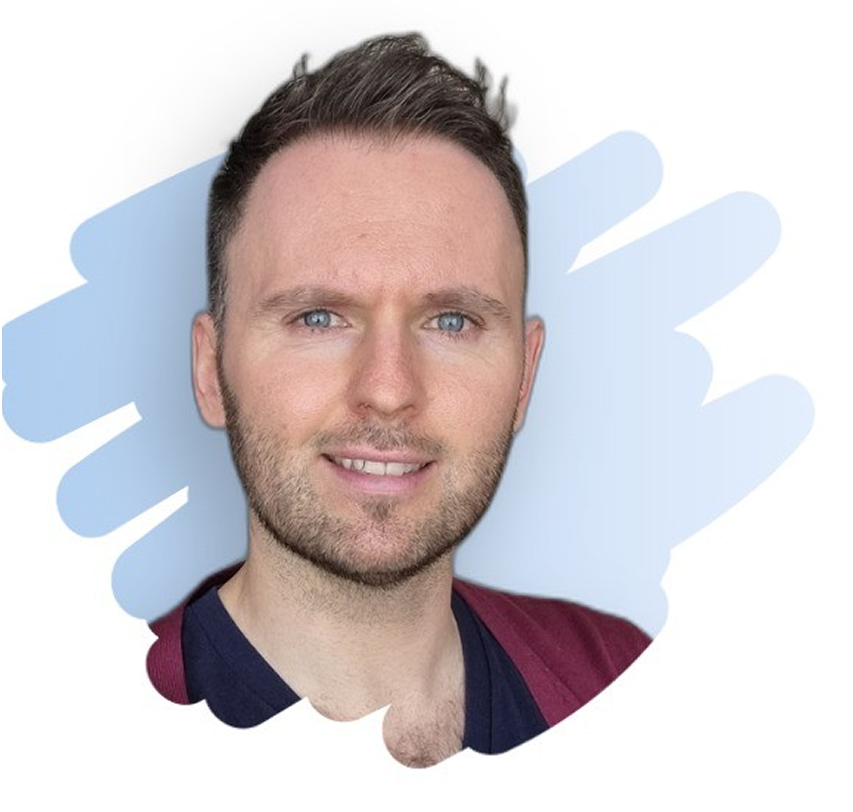Tability made a name for itself by keeping things simple. Weekly check-ins. Lightweight OKR tracking. Minimal setup. For early-stage startups, that’s a big win.
But as your team grows - or your OKR process matures - you might start to feel the limits.
We’ve spoken with dozens of founders who hit the same wall:
- “We need better visibility across teams.”
- “Tability is great for updates, but not strategy.”
- “It’s just not deep enough for our next stage.”
This guide is for you.
We’ve reviewed dozens of tools and shortlisted 7 great alternatives to Tability - from OKR-first platforms to all-in-one people ops solutions.
Whether you’re after smarter goal rollouts, richer dashboards, or just something that feels more startup-native, these seven OKR software tools give you the structure you need - and the speed you want.
Why Teams Look for Tability Alternatives
Tability shines at one thing: making weekly goal check-ins dead simple. For many startups, that’s the initial hook. But as your company scales or your needs evolve, those early strengths can start to feel like friction.
Here are the most common reasons teams start exploring alternatives:
1. Limited Visibility Across Teams
Tability is great for individual or team-level check-ins - but falls short when you need a bird’s-eye view of how the whole company is tracking against strategic priorities. Leaders often want better dashboards, filtering, and reporting.
2. No Strategic Planning Layer
While Tability nails execution habits, it lacks robust features for OKR planning, alignment, and rollout. If you’re trying to coordinate multiple teams or map goals to company-level priorities, it’s easy to outgrow the platform.
3. Too Lightweight for Growing Teams
Startups appreciate the speed. But as you scale, you need more: ownership structures, performance insights, history tracking, initiative linking - and Tability keeps things intentionally minimal.
4. Pricing Grows Quickly
At $6–$8 per user per month, Tability is affordable - until your team grows. Unlike flat-rate or team-based pricing models, costs can add up fast as more people need access.
5. Lack of Integrations & Customization
Some teams want Tability to connect with tools like Notion, Jira, or HubSpot - and find the options limited. Others want to customize goal structures or workflows but hit platform constraints.
7 Best Tability Alternatives for Startups
If you’ve outgrown Tability - or hit limits on integrations, structure, or scale - it might be time for a more tailored OKR solution. Below, we break down 7 standout alternatives, each designed to solve different challenges startups face when moving beyond the basics.
Let’s start with a platform built for speed and simplicity.
1. OKRs Tool
Best for: Startups that want to roll out OKRs in minutes - and actually stick with them
Pricing: Free for 1–5 users; flat $30/month for 6+ users after that.
If you’re looking for a simpler, faster alternative to Tability that still keeps your team aligned, OKRs Tool is hard to beat. It’s built specifically for startups who don’t want bloated dashboards or clunky onboarding - just a clean, effective way to plan, track, and check in on OKRs.

Why teams switch from Tability:
- AI-generated OKRs that help you write better goals in less time
- Team-based pricing (not per user) that scales affordably
- Slack check-ins for async updates that don’t interrupt flow
- Built-in planning + tracking, so you don’t need Notion, Google Sheets, and a dozen tabs open
What to watch for:
- Limited integrations (currently Slack only)
- Export and advanced analytics features still in development
Bottom line: If Tability feels like a nice habit tool but not a full OKR system, OKRs Tool gives you that next level of structure - without adding overhead.
2. SimpleOKR
Best for: Startups that want OKRs without feature bloat or per-user pricing
Pricing: Flat $49.99/month (unlimited users)
As the name suggests, SimpleOKR keeps things - well - simple. It’s ideal for teams who don’t need bells and whistles, just a clean interface to set objectives, track key results, and stay accountable.

Why teams switch from Tability:
- Flat pricing keeps costs predictable as your team grows
- Minimalist UI makes onboarding fast and intuitive
- No distractions - just OKRs, timelines, and check-ins
What to watch for:
- Lacks integrations with tools like Slack, Jira, or Notion
- Limited reporting and no mobile app
Bottom line: If you want to skip the complexity (and the pricing gymnastics), SimpleOKR is a refreshingly straightforward pick.
3. Quantive
Best for: Teams that want advanced analytics and data-driven OKRs
Pricing: From $5/user/month (Essentials plan)
Quantive offers powerful OKR management with deep analytics and dynamic dashboards. If Tability feels too lightweight or doesn’t give you enough data insights, this is a serious upgrade.

Why teams switch from Tability:
- Strong analytics and real-time KPIs
- Integrates with 160+ data sources to auto-update OKRs
- Useful for OKR reviews, performance tracking, and forecasting
What to watch for:
- Best suited to data-literate teams
- Can feel overwhelming if you don’t need advanced dashboards
Bottom line: If you’re outgrowing manual updates and want data-backed decisions tied to your goals, Quantive is a strong contender.
4. Mooncamp
Best for: Startups that want flexible OKRs with great UX
Pricing: From €6/user/month (14-day free trial, no credit card)
Mooncamp is a modern, cleanly designed OKR platform built for flexibility and ease of use. It’s a strong pick for teams that liked Tability’s lightweight check-ins - but want more structure, customization, and integrations.

Why teams switch from Tability:
- More customizable OKR workflows
- Better reporting and visibility across teams
- Strong integration support (Slack, Teams, Notion, etc.)
What to watch for:
- Limited strategy/initiative mapping (compared to heavier tools)
- Less suited for large enterprises with complex org charts
Bottom line: If Tability feels too limiting and spreadsheet-like, Mooncamp offers more muscle - without overwhelming your team.
5. Perdoo
Best for: Startups and scaleups that want OKRs + KPIs in one place
Pricing: Free plan available (limited features), paid plans from $9/user/month
Perdoo blends OKRs, KPIs, and strategy maps in one unified platform. It’s ideal for teams that want more than just weekly check-ins - but without the complexity of enterprise software. You get dashboards, dependencies, progress tracking, and even a public strategy map for alignment.

Why teams switch from Tability:
- Built-in KPI tracking (alongside OKRs)
- Visual strategy alignment across teams
- Flexible check-ins and performance snapshots
What to watch for:
- UI can feel busy or dated for design-first teams
- Some features locked behind higher-tier plans
Bottom line: If you’re outgrowing Tability and need a more structured OKR system with visibility into KPIs, Perdoo is worth a close look.
6. Weekdone
Best for: Small teams that want OKRs + weekly planning in one place
Pricing: Free for up to 3 users, paid plans from $90/month per team
Weekdone combines OKRs with weekly planning and check-ins, making it a good starter tool for small teams. Its structured workflow nudges users to plan weekly priorities and update progress on OKRs, all in a single dashboard. For early-stage startups, this can help build the muscle of consistent goal-setting and execution without needing multiple tools.

Why teams switch from Tability:
- Built-in weekly planning and team check-ins
- Visual dashboards to track OKRs and progress
- Easy to roll out to small, cross-functional teams
What to watch for:
- Limited integrations (e.g., no Notion, Asana, or Google Sheets)
- Outdated UI and navigation compared to newer platforms
Bottom line: If you're running a small team and want simple OKR software that reinforces habits like check-ins and reflection, Weekdone is a solid alternative to Tability - though it may not scale with you.
7. Peoplebox
Best for: Startups scaling performance, engagement, and OKRs together
Pricing: Custom pricing only; no free plan available
Peoplebox goes beyond goal tracking by combining OKRs with performance reviews, engagement surveys, and 1:1 management tools. For growing startups that want to align goals and culture in one platform, it’s a powerful all-in-one solution. Leadership teams like the reporting features and real-time dashboards that make it easy to spot at-risk goals.

Why teams switch from Tability:
- OKRs + performance reviews + engagement in one tool
- Slack and HRIS integrations for seamless update
- C-suite dashboards for tracking progress company-wide
What to watch for:
- Can be overkill if you only need OKRs
- Steeper setup and onboarding curve
Bottom line: If you’re scaling fast and want OKRs to plug into your broader people operations, Peoplebox offers depth that Tability doesn’t. Just be ready for a more involved setup.
How to Choose the Right Tability Alternative
Not sure which tool is best for your startup? Here's a quick breakdown of who each platform is best suited for - no fluff, no filler.
Choosing the right OKR tool depends on your team’s size, workflow, and habits. Pick the platform your team will actually use - not just the one with the most features. Start small, track one OKR, and build from there.
Final Thoughts
Tability is a solid starting point - especially if you’re new to OKRs or just trying to build the habit of weekly check-ins. But for many startups, it eventually starts to feel more like a tracker than a true strategy tool.
As your team scales or your planning gets more sophisticated, you need a platform that brings structure without friction - one that supports planning, alignment, and execution in one flow. That’s where these alternatives step in.
The right tool should feel like a natural extension of how your team works, not another process to enforce. Start with clarity and ownership. The rest follows.






